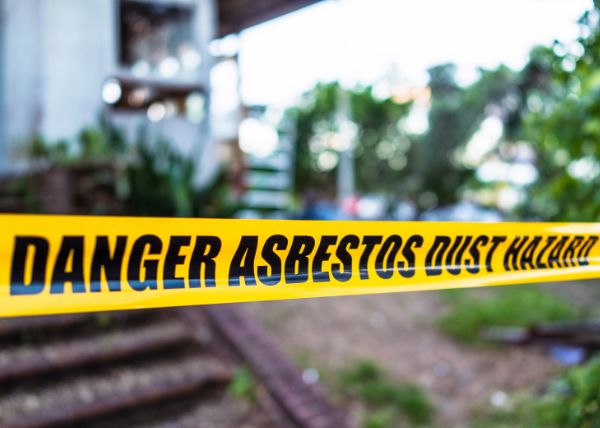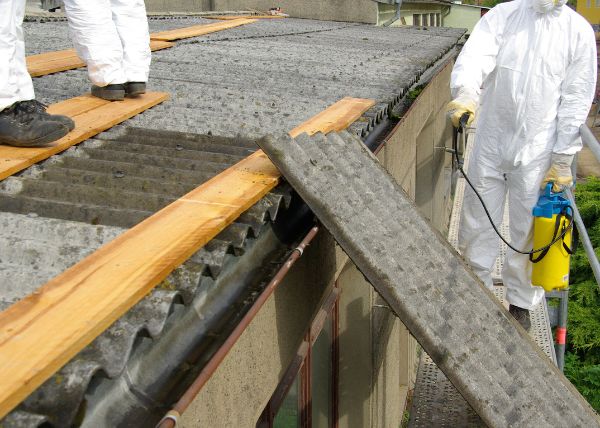
Asbestos was widely used in various industries for its heat-resistant properties before its dangers were fully understood. Unfortunately, many workers and their families were unknowingly exposed to this toxic substance. As a result, numerous lawsuits have been filed against companies responsible for the asbestos exposure. If you have been exposed to asbestos and have suffered health consequences as a result, it is crucial to understand your legal rights and options. This article will explore the factors in determining whether you can sue for asbestos exposure and the potential outcomes of such legal actions.
To know if you have a legal case, it's important to understand exposure to asbestos and symptoms of exposure. Asbestos exposure can occur in a variety of ways, including inhalation or ingestion of asbestos fibers. Asbestos fibers are very small and can remain suspended in the air for long periods. When inhaled, these fibers can become embedded in the lungs, causing scarring and inflammation. This scarring can cause difficulty breathing and other respiratory problems like asbestosis or lung cancer. Ingestion of asbestos fibers can lead to gastrointestinal problems like mesothelioma.
Symptoms of asbestos exposure can vary depending on the severity and duration of exposure but generally may include respiratory problems such as shortness of breath, chest pain, a persistent cough, and difficulty breathing. Other symptoms may include gastrointestinal issues such as abdominal pain or mesothelioma. If you have been exposed to asbestos and are experiencing any of these symptoms, it's important to see a doctor for diagnosis and treatment.

Generally, a person cannot sue just for asbestos exposure. However, if the exposure led to an injury or illness, then it may be possible to file a legal case. This is because companies and individuals have a responsibility to take reasonable steps to limit the potential harm of exposure. If this responsibility is breached and the breach causes harm, then those affected may be able to sue for negligence or wrongful death.
Key legal grounds for filing such lawsuits include:
Companies and employers may be held liable for negligence if they fail to provide adequate protection or warnings regarding asbestos exposure in the workplace. Negligence claims arise when companies know about the dangers of asbestos but fail to take reasonable measures to protect employees or consumers.
Manufacturers, suppliers, or distributors of asbestos-containing products can be held liable for producing or selling items with asbestos that caused harm. Product liability lawsuits often apply the doctrine of strict liability, holding manufacturers responsible for injuries caused by their defective products, regardless of fault or negligence.
Owners of premises containing asbestos materials may be liable for injuries sustained by individuals exposed to asbestos on their property. Property owners are obligated to maintain safe premises, warn individuals about potential hazards, and properly manage asbestos-containing materials.
Understanding and adhering to the statute of limitations for filing asbestos-related lawsuits is critical, as time limits vary by state and could impact the eligibility to bring a claim. Lawsuits often involve multiple defendants, including manufacturers, employers, contractors, and property owners, depending on the circumstances of exposure.
Individuals harmed by asbestos exposure should seek legal counsel specializing in asbestos litigation. Attorneys experienced in these cases can navigate complex legal aspects, gather evidence, and pursue compensation on behalf of victims.
If you have been exposed to asbestos and developed an asbestos-related illness, you may have the right to sue for compensation. It's important to gather evidence of exposure, establish a causal link between exposure and illness, and consult with an experienced asbestos attorney to navigate the legal process. Remember, each case is unique, so it's crucial to seek personalized legal advice to understand your rights and options.
If you've been exposed to asbestos and are experiencing illness or injury caused by a negligent company, product, or service, report it here by filling out our online form. There may be an existing class action lawsuit, investigation, or settlement that you can be added to. Your inquiry will be forwarded to one of the attorneys we work with. If a law firm contacts you, they may need more information, and you will be informed of your rights as a potential litigant.
Victims of asbestos exposure may seek various types of compensation to address the physical, financial, and emotional toll caused by their injuries. The compensation available in asbestos lawsuits typically includes:
Asbestos-related illnesses impose significant physical, emotional, and financial burdens on victims and their families. Seeking compensation through legal action aims to alleviate these burdens and provide financial support for necessary medical treatments, lost income, and the overall impact of asbestos-related diseases.
Asbestos is a naturally occurring mineral once extensively used in various industries for its heat-resistant properties. Exposure occurs through inhalation or ingestion of asbestos fibers present in materials like insulation, tiles, and more.
Asbestos exposure can lead to serious health conditions such as mesothelioma, lung cancer, asbestosis, pleural plaques, and other respiratory issues.
Asbestos-related diseases often have long latency periods, typically ranging from 10 to 50 years after initial exposure before symptoms appear.
Individuals diagnosed with asbestos-related diseases and their family members in case of wrongful death due to asbestos exposure may file lawsuits seeking compensation.
Asbestos lawsuits are based on legal principles such as negligence, product liability, and premises liability due to inadequate protection, defective products, or failure to warn about asbestos hazards.
Yes, each state has a statute of limitations governing the time frame within which a lawsuit must be filed after the diagnosis or discovery of an asbestos-related illness.
Compensation varies based on individual circumstances, the severity of the illness, medical expenses, lost wages, pain and suffering, and other factors unique to each case.
Yes, individuals exposed to asbestos can still pursue legal action, often through asbestos trust funds set up by bankrupt companies or by targeting liable parties that are still operational.
Not always. Many asbestos cases are resolved through settlements negotiated between parties, avoiding trial proceedings.
Experienced asbestos attorneys assist victims in navigating legal complexities, gathering evidence, evaluating case value, negotiating settlements, or representing them in court.





